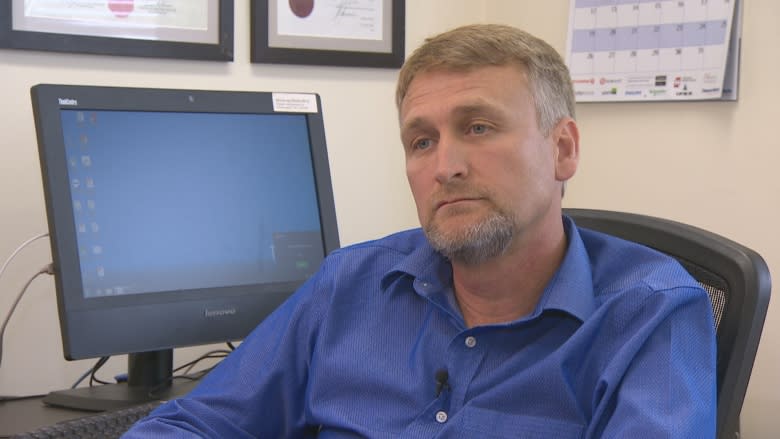Antigonish surgeon warns red tape could lead to doctor burnout
A doctor in Antigonish, N.S., is calling for better collaboration to improve the locum system in Nova Scotia.
Dr. Lukas Wasserman is a general surgeon at St. Martha's Regional Hospital. Ordinarily there are three surgeons on staff, but since March they've been down to two. That means Wasserman and his colleague take turns being on call every other weekend.
Where things get particularly difficult is when one of them wants to take time off for vacation. In those cases, Wasserman and his colleague have attempted to find locums — fully trained and practising doctors who can temporarily replace them — to cover their break, but that's proved difficult. In the meantime, the surgeon who isn't on vacation is left to cover the hospital until his colleague returns.
"That is incredibly hard to do, to be on call 24 hours a day for two weeks," Wasserman said in an interview.
"But, it is something that we have to do. It is a privilege to work in this community. We really want to keep the service here. We know the patients need it and, although it's hard, we just keep doing it."
Wasserman said he started trying to find someone in April to cover his time off in July and later this month. When no one in Nova Scotia could be found, he advertised nationwide and received six responses from interested surgeons.
Challenged by 'red tape'
But for a locum to come here from another province, they need to be licensed by the College of Physicians and Surgeons of Nova Scotia, and Wasserman said the process has proved time-consuming enough that surgeons in Ontario and Saskatchewan who each agreed to come have been unable to get a licence in time.
"There's an extensive amount of red tape to go through," he said. "What ends up happening is they find something else."
Dr. Gus Grant, the college's registrar, said he understands doctors' frustrations. But he also noted that doing a locum is high-risk work because doctors are coming into a situation that's new to them with patients they don't know.
"I guess bureaucracy does get in the way, but it's well-intended bureaucracy. We need to have due diligence. We need to ensure that the docs seeking to fill a locuming position, which is a high-risk type of medical practice, are appropriate for the task."
Grant said once all the necessary paperwork is received, it's a fairly quick process to approve a licence, but he conceded it can be difficult for doctors to get everything together. The process is something being examined nationally by the board of the Federation of Medical Regulatory Authorities of Canada, he said.
Seeking a streamlined system
"We are looking to find ways to streamline this to ease mobility of fully licensed physicians. It would be nice if we had an approach that allowed for trusted travellers, if you will."
Wasserman said he understands the need to protect patients, and he isn't advocating for the doors to be thrown wide open to just anyone to work in hospitals. But he said doctors who are already being stretched thin need to be able to take breaks without worrying about whether there will be service for their patients.
He'd like to see the college and the Nova Scotia Health Authority work together on the matter. In particular, he worries the health authority doesn't appreciate the seriousness of the issue because it hasn't interrupted service at St. Martha's.
"We are keeping going, but burnout for physicians is a real problem."
A spokesperson for the health authority said recruiters for the province support the service by helping match doctors who are interested in locum opportunities with departments that have current or future openings. The health authority also promotes locum opportunities as a way to introduce potential recruits to life in Nova Scotia.
Read more articles from CBC Nova Scotia



